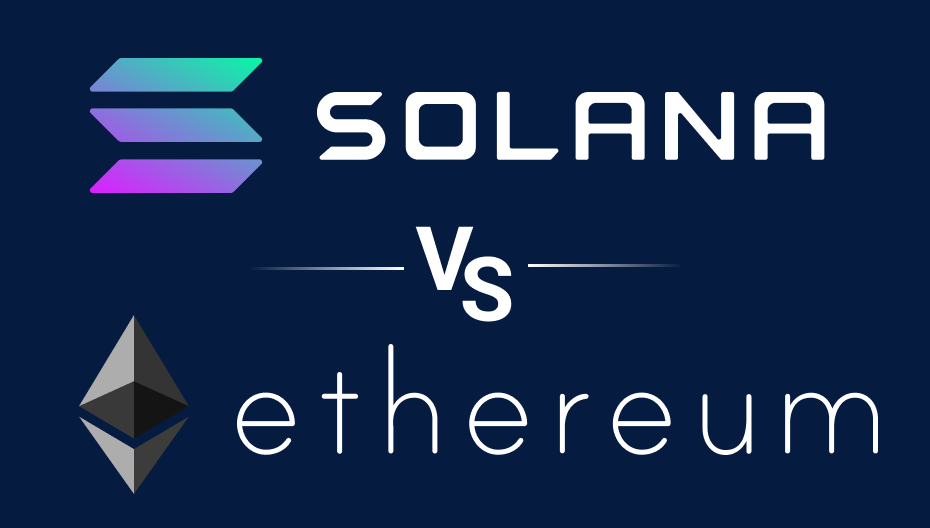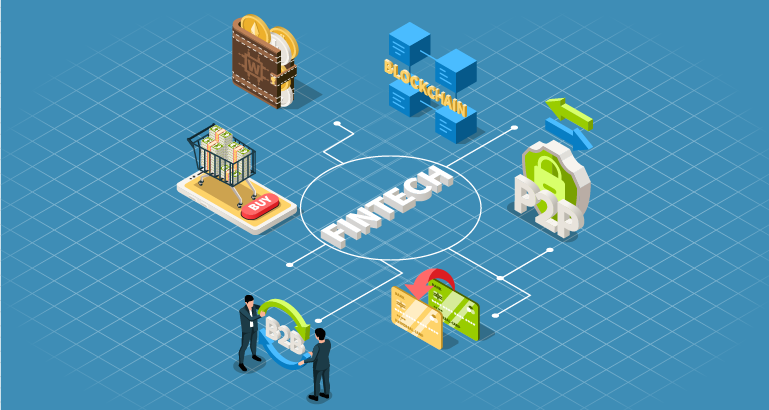Solana vs Ethereum
Introduction
The era of blockchain technology began with the advent of Bitcoin, a blockchain network created by Satoshi Nakomoto exclusively for transactions in a decentralized ecosystem. Since then, countless other blockchain networks have been created, of which Ethereum is considered to be the most substantial one. Ethereum introduced the proof of work concept enabling the development of DApps on it in addition to making transactions. It plays a major role in the mainstreaming of blockchain technology by providing a diverse range of use cases to it.
Ethereum is considered to biggest host in the blockchain sphere, hosting more than 4000 projects every year. It governs the crypto market with around 3000 dApps operating on its platform. The competition is hot with the outburst of different decentralized and now Non-Fungible Tokens. Through the summer of 2020, DeFi proved Ethereum to be the power bank, whereas the rise of 2021 witnessed Solana as the catalyst with better transaction speed at a lower cost. Ethereum is working towards it and is about to achieve it through its Ethereum 2.0 upgrade.
Both the blockchain networks have a fair share of fan following, but the supremacy of Ethereum over a few features like transparency and an advanced ecosystem for dApps can not be ignored. But, there do exist certain solid points of technical limitations that cannot be ignored. Let's take a deep dive into every aspect of both blockchain networks!
Consensus Mechanism
Ethereum - Ethereum uses Proof-of-work (POW) as a consensus mechanism for minting blocks, which consume a lot of electricity. If reports are to be believed, it consumes more energy than Israel and Belgium together. This has worried people around the world, as it contributes to global warming.
Solana - Salona embraces energy-efficient algorithms called Proof of Stake and Proof of History. Both these algorithms are environment-friendly.
Transactions Per Speed
Ethereum - Ethereum is popular and is congested. It takes 10-15 secs to mine one single block, i.e., to complete one single transaction. And, it can handle only 15-45 transactions per second.
Solana - Salona conquers Ethereum in this factor. Salona has raised the standards by mining one single block in 400 milliseconds. It executes 50,000 TPS and executes 65,000 transactions per speed.
Gas Fees
Ethereum - There are huge fluctuations in the gas fees in the Ethereum blockchain network from a few cents to 100 dollars. And, the icing on the cake comes when there is no bar for the upper limit if a smart contract is involved. The transaction fees can roar to millions of dollars if the transactions are complex and bigger.
Solana - When it comes to Salona, it is broadly cheaper than Ethereum. On average, it costs only $0.00025 per transaction.
Waiting Period
Ethereum - Here, one transaction needs to wait around four minutes to complete.
Solana - It can be considered as one of the greatest benefits that Salona has over Ethereum. Transactions are executed instantly.
Coding
Ethereum - Ethereum runs on Solidity, which is difficult to code and understand.
Solana - Salona operates on Rust, which welcomes a wide variety of applications, including blockchains and games. It is easy to deploy and has proved its exponential growth over a while.
Exponentially Growing Ecosystem
Ethereum - Ethereum's popularity is still touching the skies. But, its users still face the issues of translation, speed, cost, etc. It does not support as many coins as Salona.
Solana - Salona does face any of the challenges mentioned above. It can host multiple dApps, and smart contracts are growing over there.
Bandwidth
Ethereum - It faces bandwidth problems, and this leads to a slowdown of the blockchain network.
Solana - Salona utilizes the Turbine protocol, which breaks down the packets and transfers every single packet to a group of computers. The load is shared, where less bandwidth is used, and less time makes the network stronger.
Conclusion
Over some time, Ethereum has accomplished getting some dedicated community members. This community believes in the success of the network. And, Ethereum has also managed to keep becoming the support system of DeFi, NFTs, and, DApps. Thus, the faithfulness of community members is still tall and strong. Solana came into the blockchain arena with the promise of speed and efficiency. Thus, the surge in the Solana network is something to be noticed, which will contribute to making it a long-term winner.
The Crypto market is volatile. Not just in the case of crypto prices, but also in performance. Every day new revolutions are made. So, let’s just keep an eye on both the networks and see the wonders.
But, for doing wonders you will need a wonderful team to back you up. Leverage Nu10’s crypto, DeFi, NFT, etc., services for developing your project either on Ethereum or on Solana. Nu10 technology is a Crypto and DeFi firm, that has expertise in developing, marketing, and offering consultation for projects in the blockchain arena. We offer low code no code scripts. Our team of developers is fluent and has expertise in developing projects on different blockchain platforms. If you have any questions about which blockchain will suit you best, all you need to do is contact us! We will offer you our consultation services, through will you will be able to get a clear idea about future aspects of the blockchain space.
Written by
Gururaj Potnis
Gururaj Potnis is an accomplished entrepreneur with 18 years of experience across ventures such as Erasmic Consulting, Manthan, and Idea Bubbles. An alumnus of IIM Calcutta and IIT Delhi, Gururaj has a proven track record of steering organizations through growth and transformation. His leadership philosophy centers on fostering innovation, nurturing talent, and delivering scalable, future-ready solutions that resonate across industries.









